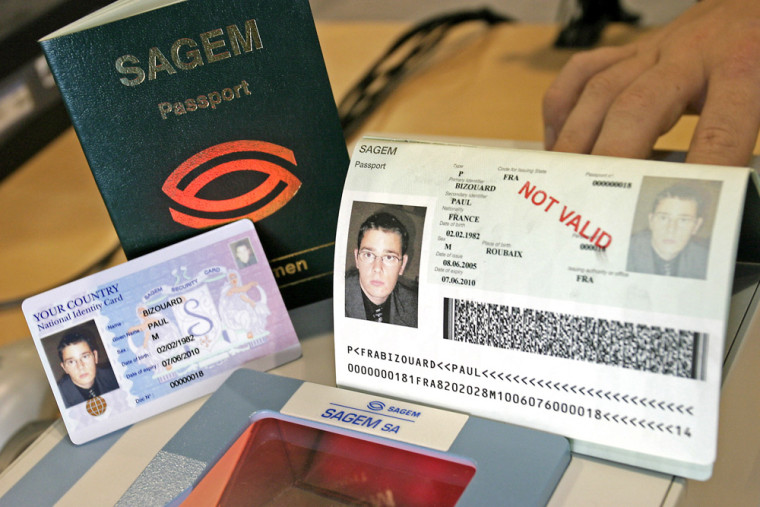Foreign travelers from friendly nations won’t be immediately asked to show fingerprint and iris scan data when entering the United States but could have to in upcoming years under Bush administration plans announced Wednesday.
Twenty-seven allied nations — mostly from Europe — whose citizens enjoy visa-free travel rights to the United States have resisted the stricter biometrics passport standards that would incur additional costs and privacy concerns.
By Oct. 26, the visa-waiver nations will be required to issue passports with tamperproof digitized photos to comply with laws tightening U.S. borders after the 2001 terror attacks. One year later, however, visa-waiver nations’ passports will have to include an integrated circuit chip capable of storing expanded biographic information, Homeland Security Secretary Michael Chertoff said Wednesday.
“The electronic passport is the path to secure and streamlined travel among visa waiver program countries,” Chertoff said in prepared remarks that he was to deliver while attending a meeting of G-8 ministers in Sheffield, England.
Time to comply
Chertoff said the new requirements, or e-passports, “will maintain and strengthen the integrity of the visa waiver program.”
Under the new guidelines, the United States will require the 27 nations to submit their e-passports plans for approval by Sept. 1, 2006 — six weeks before the passports are to be issued beginning Oct. 26, 2006. Additionally, the nations will be required to report all lost and stolen passports to Homeland Security and Interpol.
In Brussels, Attorney General Alberto Gonzales told reporters “there are going to be changes” that give the visa-waiver nations more time to comply with biometric standards. Gonzales was to join Chertoff in England later Wednesday.
However, the European Union and others have complained they would not be able to have the technology ready in time. They have appealed for more time, and the U.S. administration has been working with Congress to agree on a solution.
Looking for ‘good news’
“We need a prolongation of the deadline; otherwise there will be serious consequences for travelers,” said Gunnar Wiegand, head of the U.S. and Canada desk at the European Commission. “We are hoping that there will be some good news in the next few days.”
Gonzales told reporters the agreement takes into account concerns expressed by France, Italy and others.
He did not say how much extra time countries would be given. The EU has asked for a new August 2006 deadline.
Congress extended a 2004 deadline for the introduction of the passports by EU countries to October this year but had refused a further extension.
On his first visit to Brussels, Gonzales met with top EU officials for talks that focused on counterterrorism cooperation. He said the two sides were working well together but urged the Europeans to introduce safeguards that would allow the United States to transfer more classified data to help their investigators.
He said the lack of such safeguards in Germany had prevented the United States from sharing information that could have been useful in trials where terror suspects had been acquitted.
